The quality of air in private and public buildings you spend time in is a core factor in your health. Thus, ensuring excellent air quality in the indoor spaces that you live and work in can play a key role in improving your health and quality of life. Many people across the United States spend a great percentage of their time indoors, making it crucial to have healthy indoor air quality. This can mainly be true in places where the weather conditions inhibit people from being outside. The following are some easy and practical ways to improve indoor air quality.
Regularly Clean and Vacuum
Regular cleaning can reduce the allergens in your home, which helps alleviate your allergy symptoms. However, you should be very careful that your efforts in cleaning do not backfire. Some cleaning methods and products can increase allergy symptoms.
If you have allergies, you should create a cleaning schedule to reduce dust and other particulates in the air. Doing this every week can prevent your home from becoming a trigger zone. For instance, since brooms kick up dust, you can use electrostatic dust cloths instead of a traditional broom. You can also use these around the home instead of a feather duster. You can find electrostatic dust cloths in the shape of dusters to get in the cracks and crannies of furniture and other items.
Regular vacuuming is also critical. Use a vacuum with a HEPA filter so you’re not just shooting dust into the air. Ensure you vacuum places most likely to harbor allergens, such as carpets, furniture, window treatments, and bedding. You can prevent dirt from entering the home by removing your shoes at the door.
Ventilate Properly
Your ventilation systems are a crucial defense against allergens. Cooking can significantly reduce your indoor air quality. Always use the fan above the stove when cooking. If you have one, always use the bathroom fan when showering. This can help prevent the buildup of moisture that can lead to mold growth.
If you don’t already have one, you can consider investing in a whole-home ventilation system. These can be especially helpful in modern homes that are well-sealed. While opening windows brings in fresh air, it can also bring in a host of allergens. A ventilation system can bring in air from outside and filter it before it circulates in your home. This can help keep your air fresh and clean.
Control Humidity Levels
Indoor humidity levels are crucial in keeping your allergy symptoms in check. The ideal relative humidity level is between 30% and 50%. If humidity exceeds 50%, it can create a breeding ground for dust mites, cockroaches, and mold growth. These are strong allergy triggers that can be reduced if the humidity levels are below 50%. A home dehumidifier can be vital in lowering indoor humidity levels.
On the other hand, if the indoor air is too dry, typically less than 30%, you can have dry nasal passages, skin, and throat. This can create problems for many people. Dry air can hold more particulates, such as dust mites, pollen, bacteria, and mold. Using a humidifier can assist in bringing humidity levels up to the optimal range. Once you keep the humidity levels in your home at the recommended percentage, you will likely notice a reduction in allergy symptoms.
We can install whole-home humidifiers or dehumidifiers. These are usually small and placed in areas where they won’t be noticed.
Be Mindful of What Product You Use
Volatile organic compounds (VOCs) are some of the greatest causes of allergy symptoms in a home. Scented candles, paint, and many house-cleaning products can all decrease indoor air quality. VOC levels can be kept at bay by keeping these items like paint and varnish outdoors in well-sealed containers.
You might be relying heavily on cleaning products like aerosol sprays or antibacterial sanitizers to make your home clean. While they may effectively clean the house and make it smell nice, they can be harmful.
All cleaning products are not created equally. Using natural cleaning products may also help maintain high-quality indoor air. You can opt for natural, non-toxic products or use everyday items like vinegar, baking soda, and lemon juice. These are effective in removing allergens without introducing harmful fumes or residues. Whether natural or not, be mindful of how you and other household members feel after introducing new products or using ones you already have.
Change Air Filters Regularly
Air filters are often considered insignificant by some homeowners. However, they play a vital role in cleansing the indoor air as it passes through the HVAC unit. They filter particulates from the air.
Pay attention to the minimum efficiency rating value (MERV) rating. The higher the number, the smaller particulates it can catch. MERV 13 is often recommended for home use as it can catch most mold, pet dander, and pollen. Typically, you’ll want to change the air filter every two or three months. However, if you have pets or live in an area with a high level of particulates, you may want to change the filter every month. This is also true if you’re experiencing wildfire smoke.
To take indoor air quality to the next level, you can turn to a whole-house filtration or purification system. The place to start is with our air quality testing. Once we know what’s in your air, we can recommend an appropriate system. Air purification systems are often installed within your central heating and air conditioning system. We can also install UV lights within your air ducts to nearly eliminate mold and bacteria from your home.
HVAC Maintenance and Repair
The condition of your heating or cooling system can dramatically affect your indoor air quality. We recommend regular maintenance to ensure the system is running properly. During maintenance, we inspect and clean various components. If you have a gas furnace, it’s even more crucial to have it maintained. If not working well, it can release harmful gases into your home, including carbon monoxide.
It’s imperative to have any issues with these systems repaired at the first sign of trouble. Airflow can be affected by a variety of problems. Without proper airflow, the filters cannot clean the air.
Rely on the Professionals
At Childers Air Plumbing & Electric, we understand the importance of keeping indoor air breathable. We specialize in air quality solutions for our customers, including testing. We can install, repair, and maintain air purification systems. Residents of Beckley and the surrounding areas can rely on us for your heating and cooling needs, including installation, repairs, and maintenance. Besides being experts in HVAC services, we offer plumbing and electrical services.
Our HVAC technicians are licensed and have years of experience in getting your HVAC or air purification system up and running in no time. When you are ready to improve indoor air quality in Beckley, WV, or have it tested, contact us at Childers Air Plumbing & Electric.

